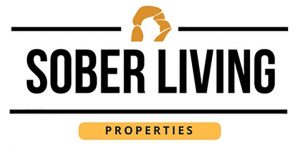You have invested time and money, and endured much suffering, for the gift of sobriety. After making it through an addiction recovery program there is but one singular goal now—to remain sober. No one really understands how difficult that might be until it is their turn to step back into the world and enter a new life in sobriety following rehab.
No doubt that the outpatient or inpatient program made relapse prevention a key theme. Relapse prevention planning is the rock upon which the recovery sits, the blueprint that will be a useful tool as you navigate the hills and valleys of early recovery. But as with anything else we pursue in life you get from it what you put in to it. Making a rock-solid relapse plan takes time and effort. A hastily constructed, poorly thought out substance use relapse prevention plan will not save you from yourself.
Avoiding a relapse should be seen in the same way that a warrior prepares for battle. The foe is stealthy, wily, and unpredictable. Addiction lies in wait, seeking that vulnerable moment, that opening, that will allow it to assert power over its victim. Have a healthy fear and respect for your enemy and be ever vigilant in your efforts to dodge and weave in the months and years ahead.
About Relapse Prevention Plan
What is a Substance Use Relapse Prevention Plan?
A relapse prevention plan is exactly what its name suggests—a plan designed to prevent relapse. Think of it as a life-preservation plan. The importance of this step during early recovery cannot be overstated. Care and thought should go into the planning. In most cases an addiction specialist or psychotherapist will guide the process of creating an individualized relapse prevention plan. This is no place to use boilerplate templates—the plan must be tailored to each individual’s particular triggers, stressors, life circumstances, support system, personality, and mental health status. All of these things must be addressed carefully when crafting an actionable substance use relapse prevention plan.
In essence, the plan becomes a living document, a tool to be utilized almost daily in the recovery journey. Some considerations to make when making the plan might include:
What Your Relapse Prevention Plan Looks Like
What Should Your Substance Use Relapse Prevention Plan Look Like?
Now that we have a pretty thorough list of items to consider for building a water tight relapse prevention plan, let’s flesh these out and expand on them a bit more. This can help you create your own personalized version of a substance use relapse prevention plan template.
What are your recovery goals?
Here the obvious response would be to abstain from substances for the remainder of your life. Unfortunately, many people still harbor feelings of ambiguity about giving up their substance of choice. It is very hard to break up with that trusty crutch. Be completely honest with yourself about your recovery goals. If, even after completing a program, you are still waffling, it is best to get specialized therapy, such as motivation enhancement therapy, which is designed for just this situation.
What are the consequences to my life if I relapse?
In most cases, the person has already experienced serious negative consequences caused by the substance use disorder. There may be relationships or a marriage at stake, parenting rights or custody, legal issues, financial issues, academic status, serious health conditions, and other potential adverse consequences should you relapse. List your own.
When am I weakest?
This is a critical item to explore with great attention to detail. There may be specific places where the substance was used on a regular basis that could pull someone back in to substance use just by sheer force of habit. There might be a certain time of day or specific day of the week. Recognizing these weak spots is an important aspect of relapse prevention planning.
What is my aftercare plan?
The steps you take after treatment can make a significant difference in the recovery outcome. Reinforcing early recovery through such actions as residing in sober living housing, weekly or twice-weekly outpatient therapy sessions, and engaging regularly in a recovery community are intrinsic to recovery success.
Who will I eliminate from my social circle?
Determine the individuals who will be supportive and a positive influence and surround yourself with then, then discard anyone who might pose a risk to your recovery. It is important to carefully vet the people you socialize with. Former acquaintances who participated in substance use with you will be detrimental to your ability to sustain abstinence.
Who will comprise my support system?
This item dovetails with the above item about ending unhealthy relationships. In this step you identify specific sources of support. It may be a trusted friend who you can always confide in, whether you are strong in your recovery or have hit a ditch. Maybe you get a sponsor from the local A.A. group. Maybe it is a therapist or clinician that you have established a strong trust bond with.
What are my triggers?
Take plenty of time to undertake this item before moving forward with the plan. Sit down, close your eyes, and allow yourself to be completely honest with yourself about people, places, or situations that are particular triggers. People who invoke feelings of anxiety, difficult relationships, stressful work-related situations, drug or alcohol cravings, certain locations that cause you to romance the addiction days—whatever your unique triggers are should be carefully listed.
How will I regulate stress?
During rehab it is likely you were introduced to holistic therapies or activities that helped to regulate feelings of stress and anxiety. Stress is one of the most common triggers to relapse, as alcohol, benzos, or marijuana were often used as self-medication techniques prior to treatment. Finding healthy activities that also relieve stress is key. These may include working out, taking a yoga class, meditation or prayer time, keeping a journal, getting a massage, or practicing deep breathing exercises.
How will I prevent a relapse?
Here is where you outline specific actions you will take when faced with a temptation to return to substance use. It is one thing to acknowledge a trigger, but if no action is taken then the plan becomes worthless. Create a list of actionable steps you will take when relapse threatens, such as calling a trusted friend, going to a meeting, calling your sponsor, going to see the therapist or participating in a group session, or distracting yourself with a competing activity.
How will I manage a mental health disorder?
About a third of those with a substance use disorder will also have a co-occurring mental health disorder, termed a dual diagnosis. If this coexisting mental health issue was not adequately addressed and treated during rehab then recovery will be short-lived. Take proactive steps to get to a mental health provider who can help you manage this secondary disorder.
What distractions can I utilize when relapse threatens?
Distraction is an important strategy to help ride out cravings or temptation to use alcohol or drugs. Identify key activities that you feel will help you get through the relapse threat. These can be engaging in a physical activity, visiting a friend, seeing a movie, going for a run, or playing video games. Whatever will take your mind off the craving.
Where will I find new sober friends?
One of the biggest challenges in recovery is feeling lonely and missing the people you have a history with, those who would threaten sobriety. Building a new network of sober friends is key to avoiding loneliness and boredom, two common triggers to relapse. Although it takes time to establish new friendships, just getting out and attending sober events and participating in sober group activities will eventually yield new friends.
What Other Protective Measures Can You Take to Avoid Relapse?
In addition to the relapse prevention plan template, there are other ways to help reinforce recovery. Cultivating healthy lifestyle habits and finding new passions can be very helpful in recovery. These actions might include:
Recovering From A Relapse
How Do You Recover After a Relapse?
If a relapse occurs, do not give up on recovery. Relapse is extremely common during the first year of recovery. It takes time to implement the relapse prevention plan effectively, so do not beat yourself up or throw the towel in on recovery. If you do relapse, here are some positive steps to take afterward:
Sober Living Properties Salt Lake City, Utah
Sober Living Properties in Salt Lake City, Utah provide individuals with a stable, supportive living environment in recovery. Whether you have recently relapsed or if you just don’t have a supportive home environment to return to after rehab, sober living housing is an excellent protective factor against relapse. For more information about our sober living homes, please call Sober Living Properties today at (866) 793-1679.



